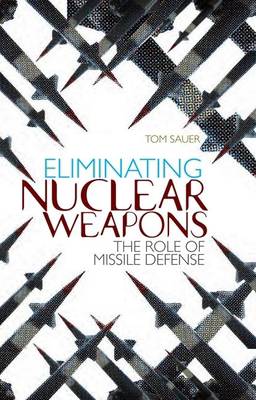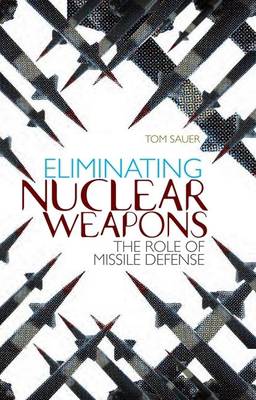
- Retrait gratuit dans votre magasin Club
- 7.000.000 titres dans notre catalogue
- Payer en toute sécurité
- Toujours un magasin près de chez vous
- Retrait gratuit dans votre magasin Club
- 7.000.000 titres dans notre catalogue
- Payer en toute sécurité
- Toujours un magasin près de chez vous
48,45 €
+ 96 points
Description
The goal of a planet free from nuclear weapons is at last being taken seriously by the foreign policy establishments of the leading powers. For the Obama administration, followed by the British government, leading the world to accept the elimination of nuclear weapons as a realistic political objective is a priority. In a world with new nuclear weapon states like India, Pakistan, North Korea, and in the foreseeable future Iran and others, it is only a matter of time before atomic weapons will be used again, whether in an authorised, unauthorised or accidental way. The ultimate fear--unfortunately a realistic one--is nuclear terrorism, that bleakly forbidding combination of ideology and technology. At the same time, missile defence seems to have finally made the move from the drawing table to the concrete silo. Even the Democratic administration of President Obama continues to spend nearly $10 billion per annum on missile defense, including land- and sea-based systems to be deployed in and around Europe. At a certain point in the not too distant future, nuclear elimination and missile defense will either reinforce or weaken each other. Is missile defence a mandatory precondition for arriving at a nuclear weapons--free world, as some claim? Or will missile defence make it more difficult, if not impossible, to reach 'global zero'? This book is the first to systematically compare and analyse both options.
Spécifications
Parties prenantes
- Auteur(s) :
- Editeur:
Contenu
- Nombre de pages :
- 176
- Langue:
- Anglais
Caractéristiques
- EAN:
- 9780199327539
- Date de parution :
- 17-05-11
- Format:
- Livre relié
- Format numérique:
- Genaaid
- Dimensions :
- 142 mm x 218 mm
- Poids :
- 317 g







